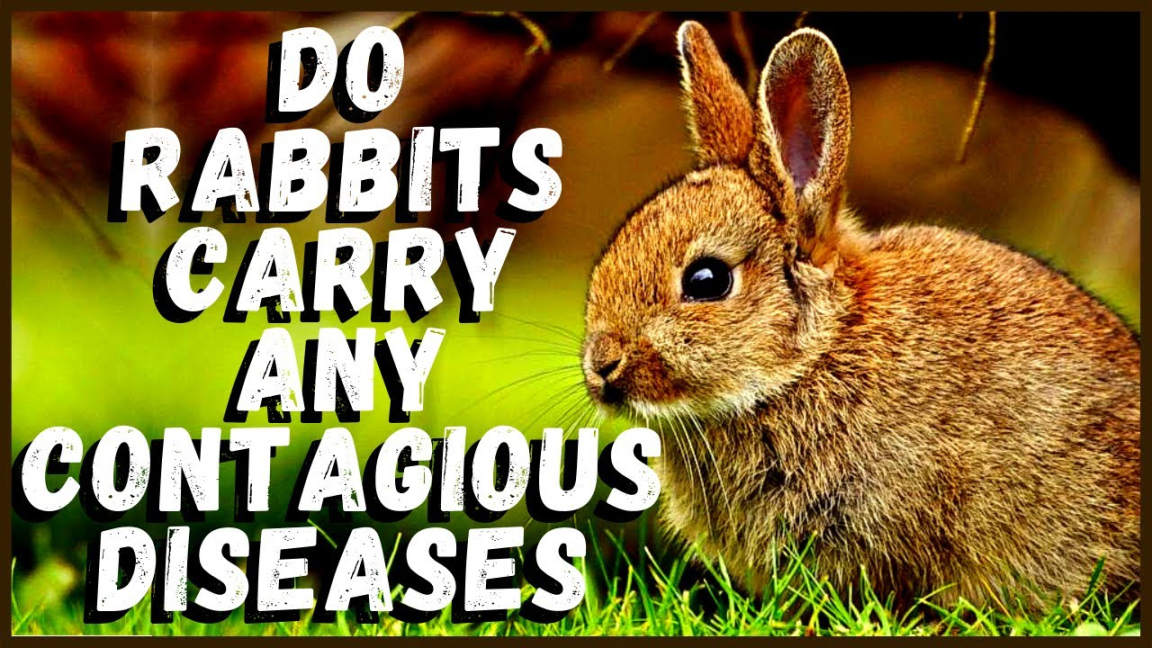Do Rabbits Carry Diseases?
Many people are drawn to rabbits as pets due to their adorable appearance and gentle nature. However, it is important to be aware that rabbits can carry certain diseases that can be transmitted to humans. While the risk of disease transmission is relatively low, it is essential to take precautions to ensure the health and safety of both rabbits and their owners.

Common Rabbit Diseases
While rabbits can potentially carry various diseases, some of the most common ones include:
- Rabbit Hemorrhagic Disease (RHD): This highly contagious viral disease affects both domestic and wild rabbits. It can cause sudden death in infected rabbits and is spread through direct contact, insect bites, and contaminated objects.
- Calicivirus: Similar to RHD, calicivirus is a viral disease that affects rabbits. It is highly contagious and can cause severe illness or death in infected rabbits. Calicivirus is primarily transmitted through direct contact with infected rabbits or contaminated objects.
- Myxomatosis: Myxomatosis is a viral disease that affects rabbits, particularly wild ones. It is transmitted through insect bites and causes swollen eyes, skin lesions, and respiratory issues.
- Snuffles: Snuffles, also known as Pasteurellosis, is a bacterial infection that affects rabbits’ respiratory system. It is highly contagious and can cause symptoms such as sneezing, nasal discharge, and difficulty breathing.
Preventing Disease Transmission
While the risk of disease transmission from rabbits to humans is relatively low, it is still important to take precautions to minimize any potential health risks. Here are some measures to consider:
- Veterinary Care: Regular veterinary check-ups are essential to ensure your rabbit’s health and catch any potential diseases early on.
- Hygiene Practices: Practice good hygiene by washing your hands thoroughly after handling your rabbit or cleaning its living area.
- Clean Living Environment: Regularly clean and disinfect your rabbit’s cage or living area to minimize the risk of bacterial or viral contamination.
- Insect Control: Take measures to control insects, as they can transmit diseases such as RHD and myxomatosis. Use appropriate insect repellents and keep your rabbit’s living area clean to reduce the presence of insects.
- Isolate Sick Rabbits: If you have multiple rabbits and one becomes ill, isolate the sick rabbit to prevent the spread of disease to the healthy ones.
Frequently Asked Questions (FAQs)
1. Can I get sick from my pet rabbit?
While the risk of disease transmission from rabbits to humans is relatively low, certain diseases such as RHD, calicivirus, and snuffles can be transmitted. It is important to practice good hygiene and take necessary precautions to minimize any potential health risks.
2. How can I prevent disease transmission from my rabbit?
To prevent disease transmission, it is essential to provide regular veterinary care, practice good hygiene by washing hands after handling your rabbit, keep their living environment clean, control insects, and isolate sick rabbits from healthy ones.
3. What are the symptoms of rabbit diseases?
The symptoms of rabbit diseases can vary depending on the specific disease. Common symptoms include respiratory issues, nasal discharge, swollen eyes, skin lesions, sudden death, and overall lethargy. If you notice any concerning signs, it is crucial to consult with a veterinarian.
4. Can I still enjoy my rabbit as a pet despite the risks?
Yes, you can still enjoy your rabbit as a pet by taking necessary precautions to ensure both your rabbit’s and your own health and safety. With proper care, hygiene practices, and regular veterinary check-ups, the risk of disease transmission can be minimized, allowing you to form a loving bond with your pet rabbit.
Related Articles…
Copyright Notice:
The images displayed here are sourced from the internet, with copyrights held by respective owners. For removal of any copyrighted image, please email us.